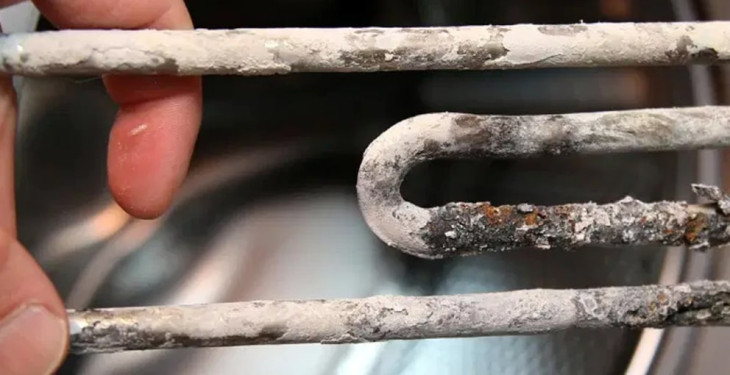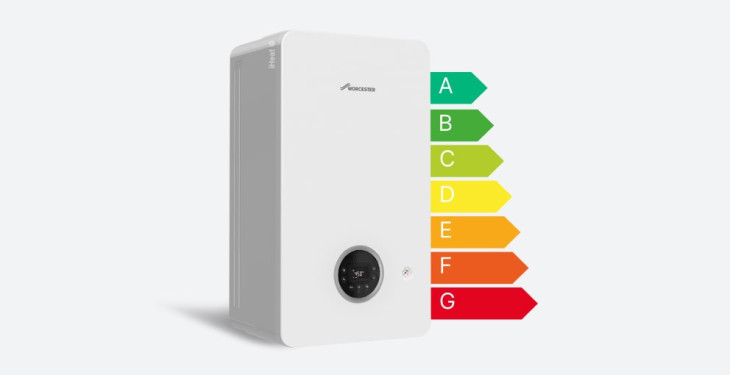

Written by Stephen Day
Gas Safe Engineer
Updated: 30th May, 2025
Limescale can be a pesky problem, but one that can be easily solved with just a few simple steps.
Get a new boiler quote, save up to £550 per year (0% APR available).
In this blog we’ll be exploring lime scale reducers and inhibitors, including how they can benefit the efficiency and performance of your boiler.
Get a quote in 60 seconds, fitted as fast as next day!
0% APR finance available.
Limescale is a common issue in households and commercial properties where hard water is present.

Hard water is caused by a high concentration of dissolved minerals such as calcium and magnesium.
When the water is heated, these minerals form limescale which can accumulate and cause damage to appliances such as boilers.
As a boiler installation company, we understand the importance of maintaining a healthy boiler system.
Limescale can cause a range of issues such as reduced efficiency, increased energy bills, and ultimately damage to the boiler system. This is where limescale reducers or inhibitors come into play.
A limescale reducer or inhibitor is a chemical treatment that is added to the water system to reduce the buildup of limescale.
It works by forming a thin layer on the inside of the pipes, preventing the minerals from depositing and forming limescale.
This treatment is commonly used in areas where hard water is present, such as the UK, to prevent limescale buildup in boilers, pipes, and other appliances.
Limescale buildup can negatively affect the efficiency of your boiler. Limescale reducers can prevent limescale buildup and help the boiler operate more efficiently, potentially reducing energy use and improving flow rates.

The damage from limescale can warrant costly repairs for boilers such as a cracked or faulty heat exchanger.
Limescale reducers can extend its life expectancy.
Boiler maintenance can be time-consuming and expensive, limescale reducers can be used to minimise frequency and duration of these types of task, saving money long term.
A limescale reducer can improve the quality of water deposited by your central heating system, making your running water clean and safe.
It is important to note that limescale reducers or inhibitors are not a one-time solution. They require regular maintenance and topping up to ensure they continue to work effectively.
This is why it is important to have a professional boiler installation company regularly check, maintain and service your boiler system, including the limescale reducer or inhibitor.
This ensures that your boiler system is running at peak efficiency and is protected from the damaging effects of limescale buildup.
In addition to using a limescale reducer or inhibitor, there are other steps you can take to reduce the effects of hard water on your boiler system.
For example, installing a water softener can reduce the concentration of minerals in the water, preventing limescale buildup.
Regular descaling of your boiler system can also help to remove any existing limescale buildup and prevent further damage.
In conclusion, limescale reducers or inhibitors are an important part of maintaining a healthy boiler system, especially in areas with hard water.
They can improve energy efficiency, extend the lifespan of the boiler system, and prevent costly repairs.
However, it's important to remember that they require regular maintenance and topping up to ensure they continue to work effectively.
We offer limescale reducers as an optional extra to all of our boiler installations, we only stock the best boiler brands in the game and offer free, fixed price quotes in 60 seconds.
Last updated: 30th May, 2025

Written by Stephen Day
Gas Safe Engineer at iHeat
Stephen Day is a Gas Safe registered and FGAS certified engineer with over 20 years of hands-on experience in the heating, cooling, and renewable energy industry, specialising in boiler installations, air conditioning, and heat pump systems.
LinkedInArticles by Stephen Day are reviewed by iHeat’s technical team to ensure accuracy and reliability.

19th February, 2026
Selecting the appropriate boiler for your London home involves understanding the different...
 Read Article
Read Article

19th February, 2026
A typical Annual Boiler Service includes a visual inspection to identify any obvious fault...
 Read Article
Read Article

19th February, 2026
Boiler servicing comprises a set of inspections and tests conducted by a qualified enginee...
 Read Article
Read Article
No obligation. Takes less than 60 seconds.